-
News & Events

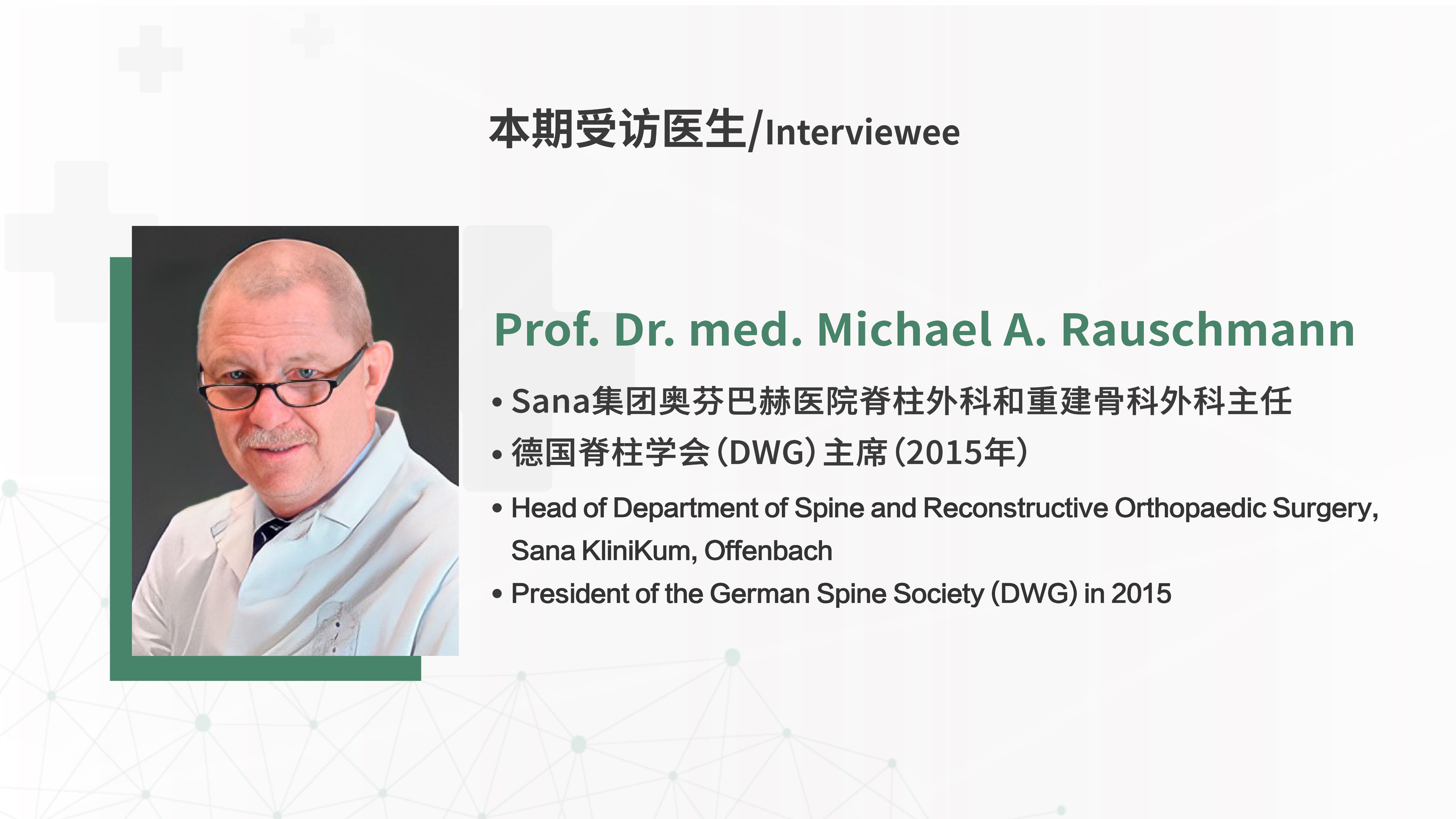
For EPISODE 13 of the World’s Great Doctors, it is our great honor to invite Prof. Michael A. Rauschmann as our distinguished guest, who is the Head of Department of Spine and Reconstructive Orthopaedic Surgery, Sana KliniKum, Offenbach and Professor of the Goethe University Frankfurt and Former President of German Spine Society. The FOCUS magazine has ranked him among the TOP physicians in Spine Surgery and Orthopedics in Germany every year since 2012.
Prof. Rauschmann is the editor of the book - Spine Surgery: A Case-Based Approach
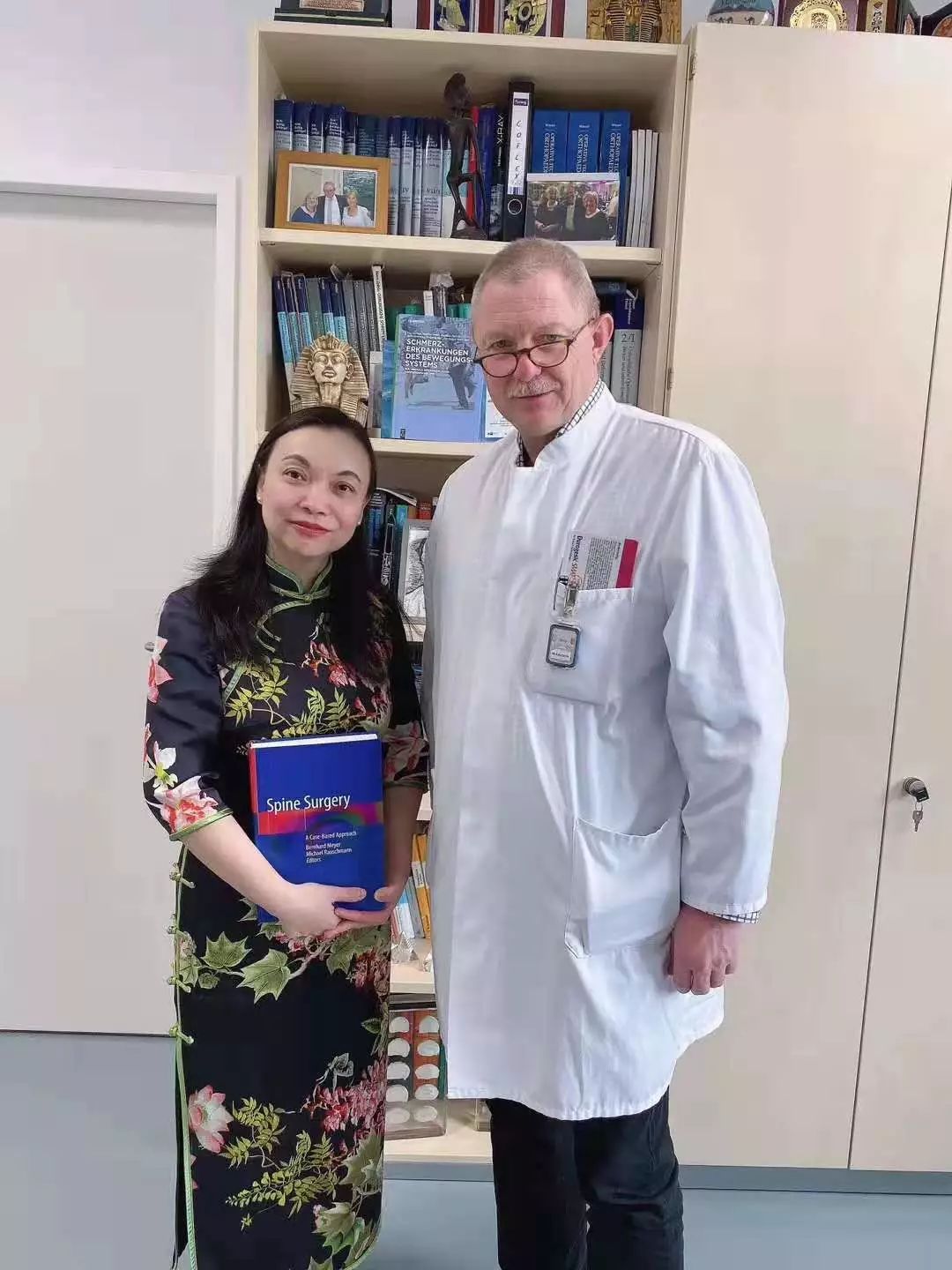
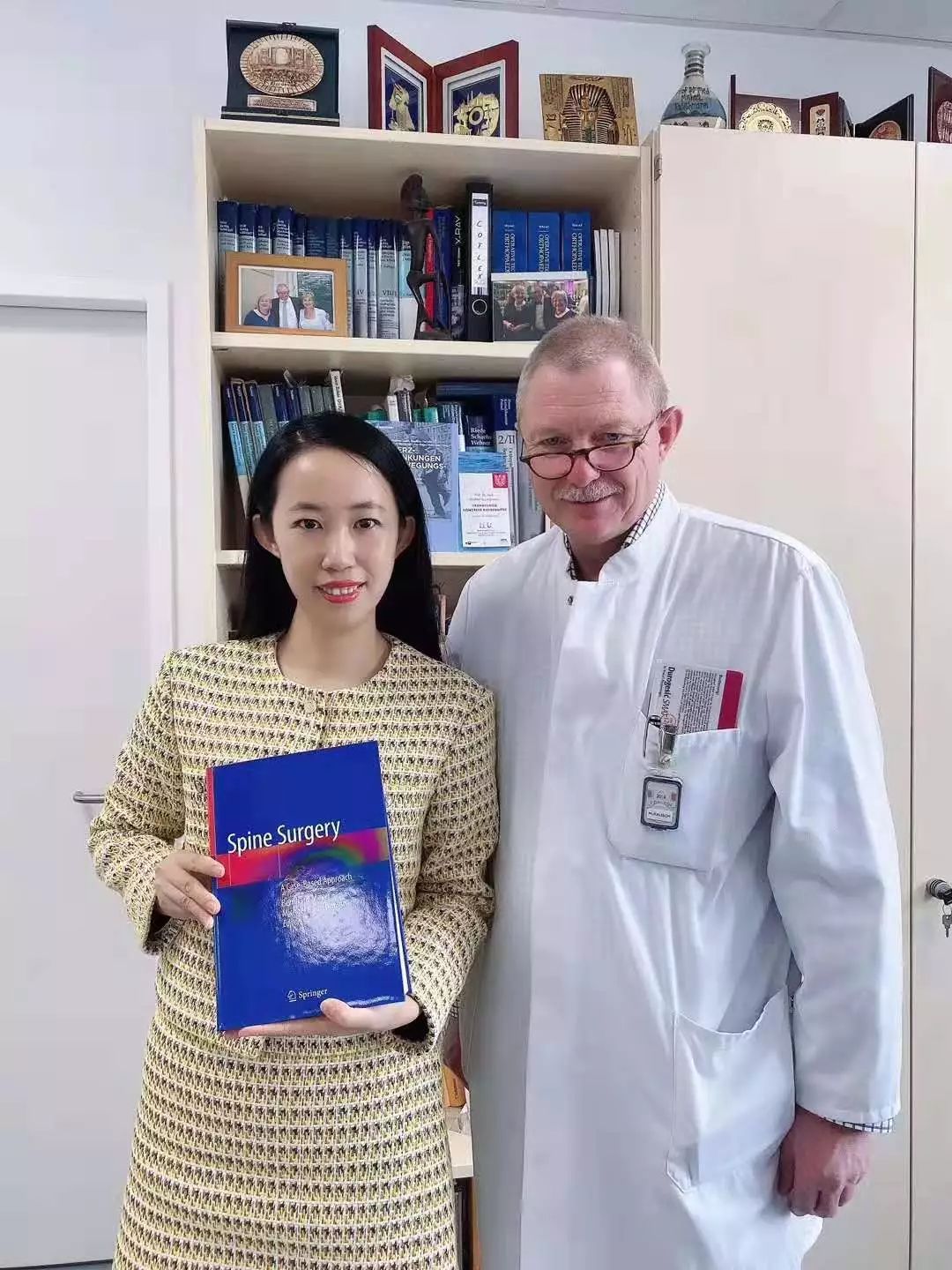
△Prof. Rauschmann and Gloryren’s team
He is also responsible for the following thematic issues of the journal "Die Orthopädie" (former name: Der Orthopäde)
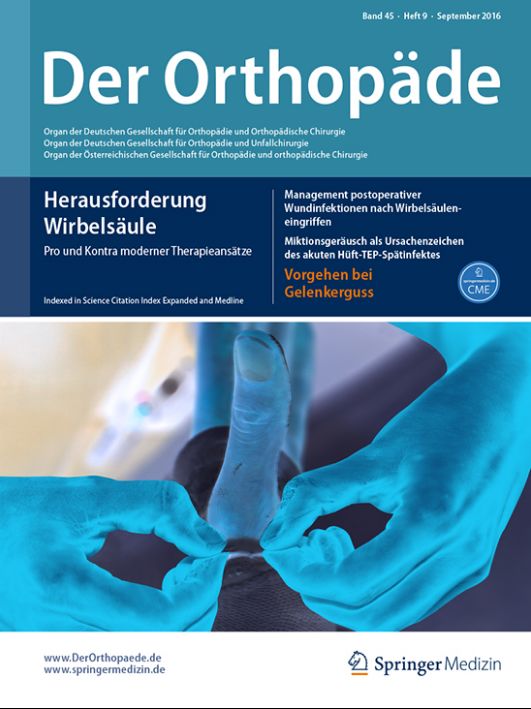
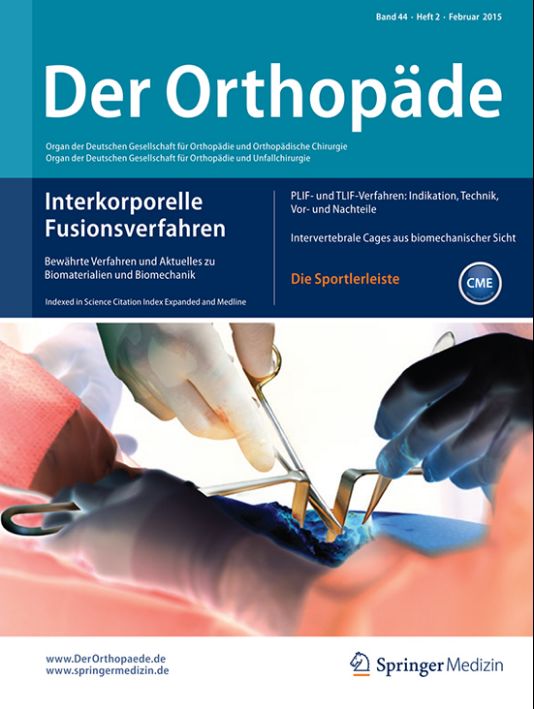
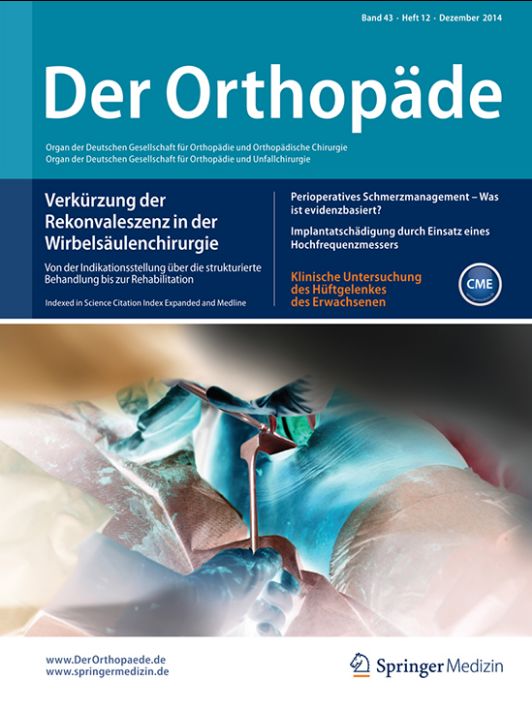
Please check the recording of the interview below
1. Why did you decide to pursue a career in medicine and why, in particular, did you decide to specialize in the spine (or spine surgery)?
Thank you for the question. I always was interested in nature, in school my favorite subject was biology. So therefore first I did a practical training in a pharmacy as a student at the age of 15 years. This was for me too theoretical with less practical issues, so I did a practical training in a hospital for severe neurological diseases. This gave me the decision to study medicine. Due to my school grade, I was not able to start immediately with the medicine study, so I went at first to the German military and after one year I started an education as a car-mechanic. After finishing this education as a car-mechanic, I had the opportunity to start my medical studies in Budapest in Hungary and 2 month later I got a place in Frankfurt Germany, so I changed my study place and did my whole study in Frankfurt, here where I was born.
My favorite interest was anatomy. So I got a very intensive contact to one of my professors and he chose me to learn microscopic preparation and later he gave me a practical anatomical study to prepare my thesis, which I did. This influenced me very much in the decision to do a surgical subject in medicine. Then I did practical trainings in different hospitals here in Germany, I went to Austria, to the United States and to South Africa for six months. Here I always preferred to work in the orthopedic surgery units. After finishing my exams, I started my first work as a doctor in a trauma unit. Two years later I changed to the orthopedic university hospital in Frankfurt for specialization in orthopedics where I stayed at least 23 years.
2. Who have been you greatest influences? What have they taught you and how have they inspired you?
My greatest influence, as I mentioned before, was my first professor in anatomy, his name was Prof. Oelschläger, and he gave me my theme for the thesis and he really had a big influence, concerning the base of my scientific work. Later on, when I went to the orthopedic university hospital I had two professors, the chair of the hospital was Prof. Ludwig Zichner, he was the general orthopedic surgeon and he influenced me due to my scientific orthopedic work and my interest in history of medicine. And concerning my clinical work, Prof. Erich Schmitt, he was the spine surgeon and he was running the spine unit, and he influenced me doing spine surgery as my specialization after finishing the education in orthopedics.
3. As a university professor, chief physician, members of many professional societies, how do you balance the administration, clinical practice, research activities, teaching and personal life?
First of all, in my mind, the family is the first choice and secondary of course, my clinical work, but in reality concerning my time, I would say of course the clinic and my clinical work and my scientific work takes most of the time in my life. Teaching students and doctors in education I like very much. Therefore I’m very active in the German Spine Society (DWG). I’m the executive director of the academy of the DWG and responsible for all the educational courses for our certificates.
4. You have been an active member of a number of medical organizations, and have been engaging in many regional and international academic activities, how has this helped to shape your career?
Going to congresses and workshops helps a lot to get in contact with opinion-leaders and important persons in the field of spine surgery. This helped me a lot to get my first contacts. By showing my results, I got respect and was asked to support these courses in the German Spine Society. I committed myself intensively and so the board of the German Spine Society elected me in 2015 to be the president of the German Spine Society. All this together shaped my career in a very important way.
5. In 2017, you moved to the Sana Clinic in Offenbach from Frankfurt, and since then you have been the head of the Department of Spine and Reconstructive Orthopaedic Surgery there. Could you please share with us what was the biggest challenge you encountered during the time of transition?
There were a lot of challenges by doing this transfer. First of all, I was scared if the patients will follow me, because if you do not have patients, you do not have something to work. The second was how will the doctors in the hospital and the professors react to me? How will the nurses and the administration will work with me and accept me in my work? And third, will I be happy in a new environment?
I think the last point is very important, if you are not happy in the place where you work, you cannot give your maximum power. Therefore I was really glad that they accepted me, that they accepted the way how I work and also accepted my work which I do. It took not a long time until I got in contact with all the different disciplines. The Sana Clinic Offenbach is a very big institution with thousand beds. And a big advantage is that all these institutions and disciplines work very close together and that worked out for me also quite fast, so I'm really happy to be a member of this team of more than 20 disciplines in the house and we work in a very perfect way, a very professional way, together to help our patients. So this is for my side, the most important thing, that I can do my work how I like to do it.
6. Are there any orthopedic sub-specialties in the Sana Clinic Offenbach?
There are different sub-specialization, we have a sub-unit for endoprosthesis of hip and knee and we have a burning unit together with plastic surgeons which is a very exceptional and is not working only for our region. And we have a special unit for foot and ankle and we also work with a pediatric department concerning deformities in the foot and lower leg. And of course the trauma work is very exceptional, because it's a big hospital in a very big area, so we have the helicopter, we have three emergency units who go out and bring the patients in. So it's very big with thousands of patients every year.
7. How many surgeries are performed in your department every year?
Nowadays I would say around 800 surgeries. You must take in mind that a majority of these surgeries are always big surgeries, so if you do a tumor surgery or a surgery in spondylodiscitis, that takes typically many hours of the day, you cannot do so much more on one day. But due to the fact that we have also a lot of emergency cases which are running 24/7. This makes the high number and also we are running two OR rooms every day. Here we have one room where we do the big surgeries, the long surgeries, and in the second room, we do more the smaller ones like nucleotomies and decompressions or something like that.
8. Could you please share one case that you think is the most challenging and impressive one?
During all these years I had different cases in my life which were very challenging for me, on the one hand of course pearls, but also pitfalls, so I remember a big tumor resection in the upper thoracic spine by a so-called Pancoast tumor, so that took at least a surgery time for me of 12 hours and then the thoracic surgeon had to take away the tumor in combination with the lung, so this was a very challenging surgery.
And also different surgeries on Chordomas in the sacrum where were very challenging for me. It’s a very long surgery where we want to get a wide resection without touching the tumor. This is a very delicate region, also there are severe consequences for the patient.
And of course in my mind, there is still a so-called “mors in tabula” where a patient with a severe spondylodiscitis in different segments of the lumber spine died in the last part of the surgery due to a heart attack. So this for me was a big stress because I didn't know what was the reason for this sudden death. And only at the very end when the patient was investigated by the pathology, we found out, that this was not the fault of the surgeon and this was a heart attack, but this impressed me very much and I nowadays still think about this very bad day in my life.
9. The city of Frankfurt am Main has appointed you as one of its congress ambassadors because of your reputation in medicine, what does this appointment mean to you?
It was an honor for me, belonging to the group of ambassadors of our city here in Frankfurt, this was due to the congress in 2015. For the city, such a big congress means, that we had 2750 participants at the congress which is a big business for the city of course, especially for the convention center, for the hotels around the convention center, and for the restaurants in the city. And having national and international guests for such a congress, it is also an honor for our city and therefore I'm happy to be one of the ambassadors. And still nowadays, we continue with this program and I do further symposiums and seminars where doctors from all over the world come to visit me and to see me how we work in the hospital. They all get contact with the city and get a walk around with me, and so also Frankfurt has a profit of guest doctors because Frankfurt is a very nice city, you know they call it Mainhattan because of the skyscrapers which is exceptional here in Germany.
10. What is your proudest career achievement to date and why?
Everyday the patients which I have successfully treated and who are very thankful to my work, this is the proudest career achievement for me. Furthermore the presidency of the DWG which I mentioned already, because I was elected from a board who are the most important spine surgeons in Germany but also international. This was a very big honor for me. But on the first place, I still see the patients and this is my biggest achievement in my work having happy and satisfied patients after my surgical work.
11. What advice would you give to young surgeons hoping to start a career in spine surgery?
I would always say they should start in a general surgery unit or in a hospital where they get a broad education in general and vascular surgery but also in trauma surgery.
Take the time for every case and stay with the patients. That's very important that you learn the way of the treatment starting with the diagnosis, doing the incision making and indication for the surgery, following the surgery and following the success of the surgery, the healing process, but also the longtime results of these patients. That's important to have an idea what you recommend to the patients later on, when you have to give them your opinion what they should do, if they should do a surgery or conservative treatment or whatever.
Try always to have a plan B for a treatment, especially in spine surgery not always your first plan will be realized in the OR, so you have to have an idea what you have to do if your first idea, if your first plan will fail.
Never do a treatment against the conviction of the patient. If the patient is not convinced, don't treat him, don't do the surgery. Patients have to be convinced of the treatment method which you will do and they have to be convinced of you as the surgeon.
Be always critical to the prescriptions from symptoms to the patients and believe them, so when a patient says, “I'm not happy with the surgery, I still have pain or I have numbness or I have a paralysis”. Take that as a truth and try to proof it, very often you will find a reason. And patients never lie, that's important to know that even if you are convinced that your surgery which you have done was perfect, even then, something can happen and can lead to an unsuccessful problem.
Try always to see a patient before doing a surgery. That's very important, also for the healing process after patients, that they know you're with them, you take care of them and you have in the very last step before the patients get the narcosis, you have another idea of their real symptoms, sometimes they change, sometimes it's not anymore on the right leg, it's now on the left leg or on the right arm, on the left arm, so it's important to see the patients just before the surgery to get all these new information about them.
At the end of the day, be honest to the patients. Even if you make a mistake, tell the patients what happened and explain them why that happened and then they still go with you also this hard way of revision surgery if this is possible, but be honest to them and don't lie to the patients.
These are my advice for young surgeons.
12. What’s the future trends of spine surgery?
There will be a great future concerning spine surgery because if you compare spine surgery with endoprosthesis in hips and knees, we are far away from the discovery, so I think navigation robotics and new surgical techniques will come over during the next years and they will increase even more in the field of spine surgery in comparison to today. So I'm very convinced that spine surgery will get bigger in the field of the surgical disciplines and also the techniques will get more precise concerning navigation and robotics. But still the feeling of the surgeon will always be important, a robot and a navigation unit cannot be only responsible for the success of the surgery, still the fingers, and the therapeutic plan which is done by the surgeon itself, making the right indication is still in the hand of the surgeon and not in the hand of a computer. So this is what we still have to take in mind that our handwork and our feeling in doing such a surgery is still the biggest, important thing to have success. But all these technical things, they will support us and they will increase our success and will increase our precision doing it and probably it will also increase or shorten the time of surgery in the future.
13. What would you have been if you had not been a medical doctor?
I don't know exactly what will have happened, if I would not have got the opportunity to study medicine, but as I mentioned at the very beginning of our interview, you know, I'm coming out of a family of hand workers. My father has had a car painting company and I was educated as a car mechanic, so probably I would have taken over his business and would have continued with the car company, that would have been probably the so-called plan B if I would not have had the chance to study medicine. I didn't want to study anything else, I only was interested in medicine as a study.
14. What are your interests and hobbies outside medicine?
I love the nature, therefore all my hobbies have something to do with nature. I'm a beekeeper, I like to go hunting, but I also like to go on the water either with my wooden canoe or with my motorboat. In every summer holidays, we go to the sea with our boat and do day cruises, so this is what I like very much. Also I like cycling and I like to go in my garden and look to the plants, and buy new plants every year to increase the number of plants in my garden and see how they grow and how they flower.
